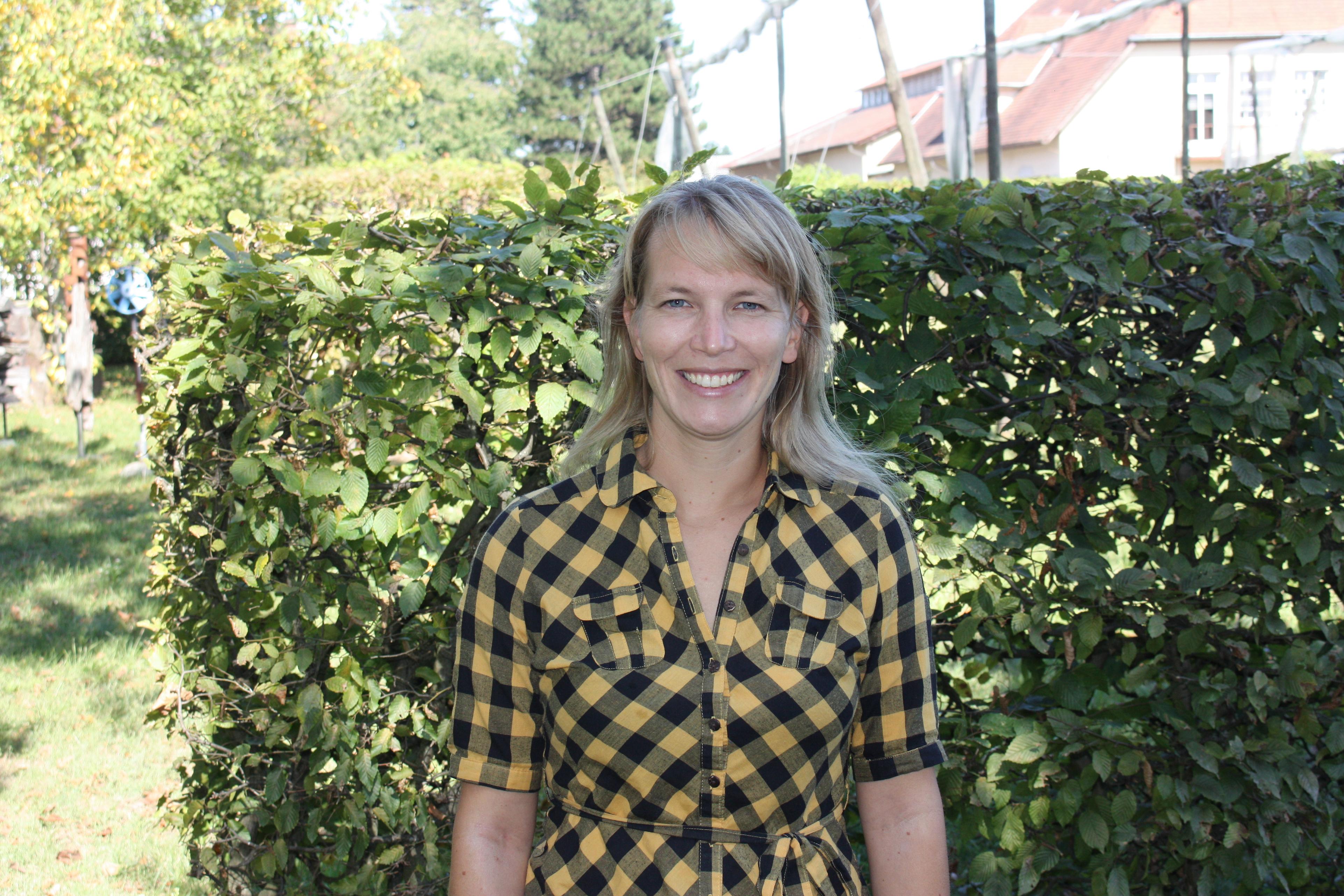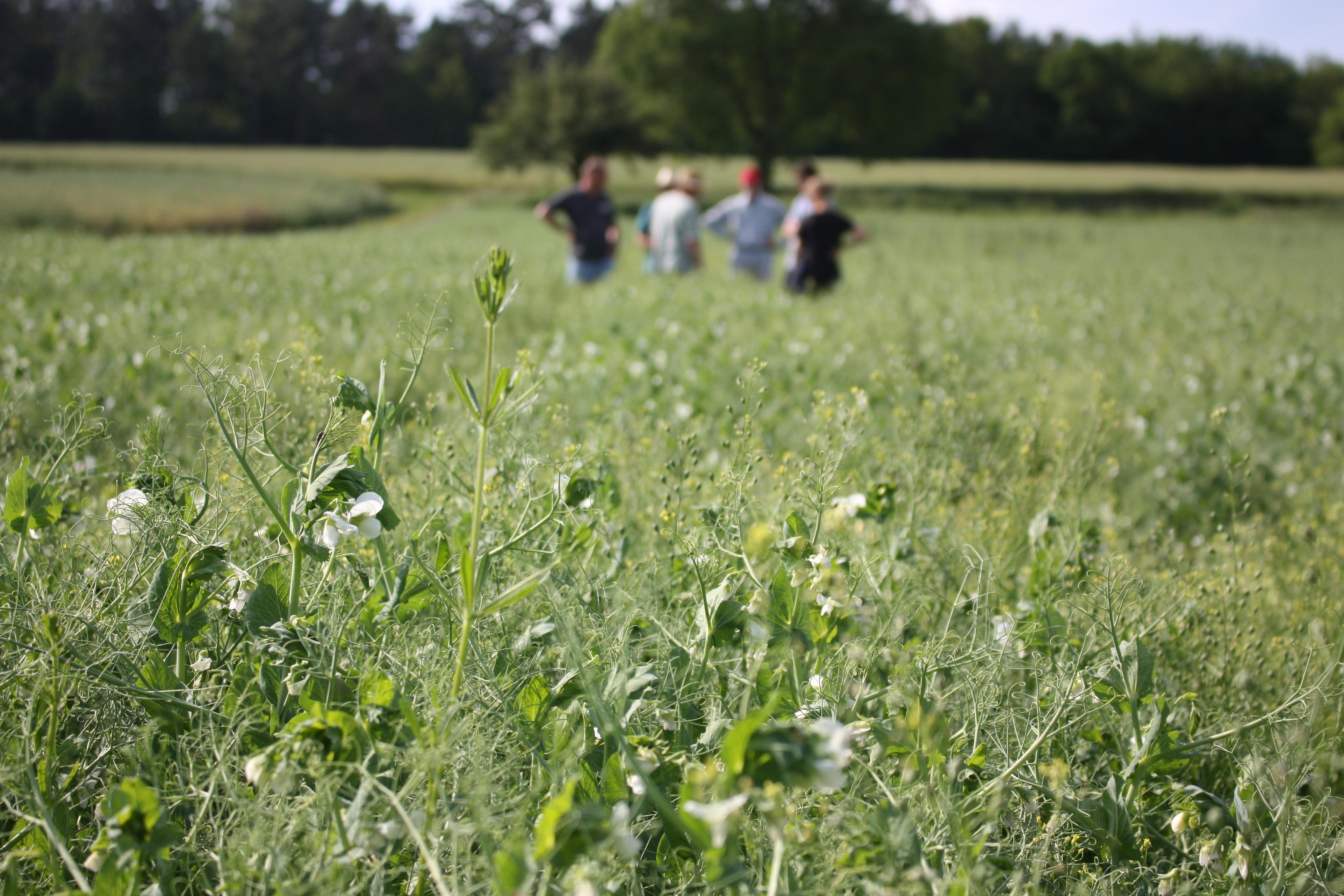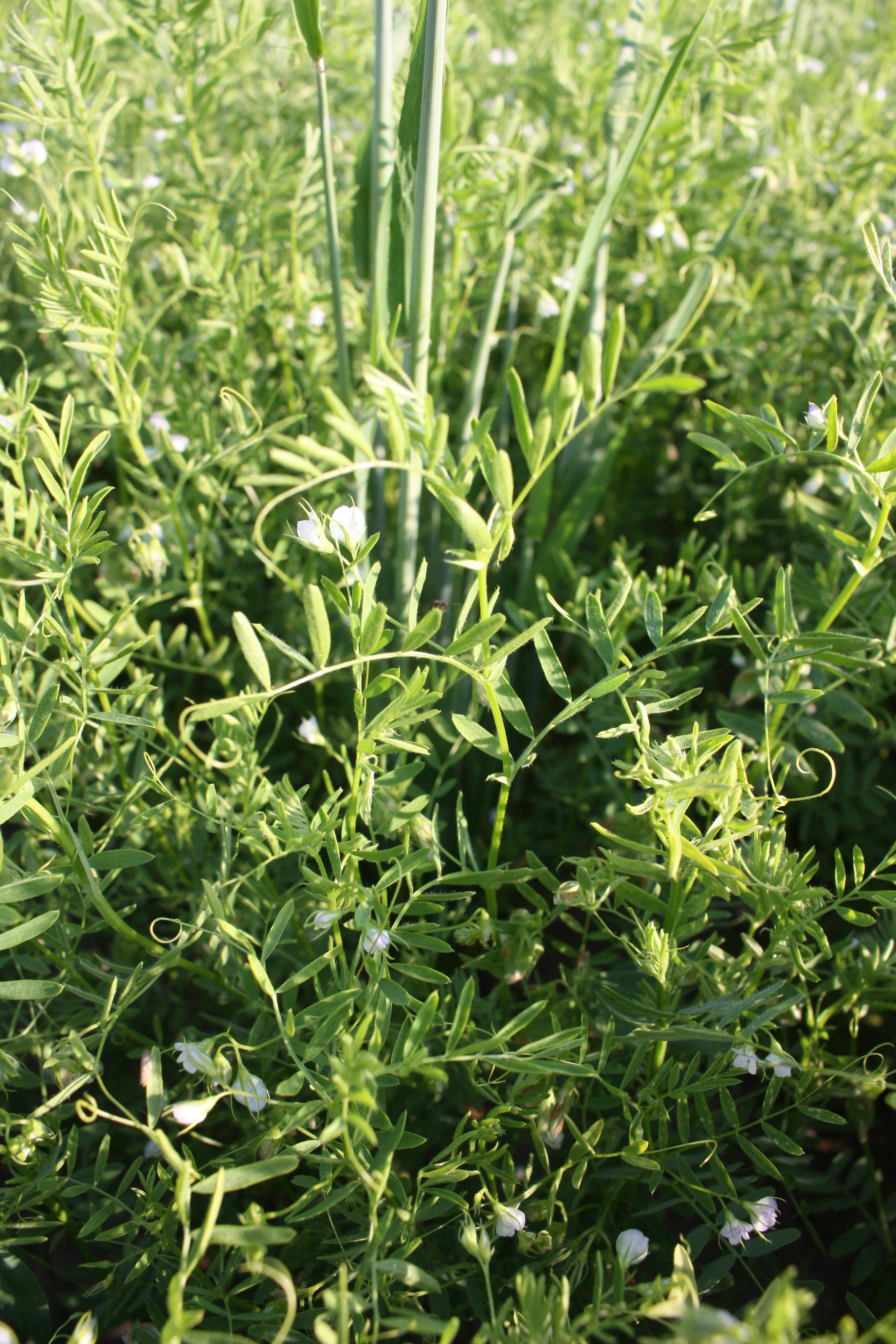Main navigation
LTZ Augustenberg promotes regional protein production
In future, more lentils, soybeans, peas, field beans and lupins will be grown again in Baden-Württemberg farms. This is what Dr. Carola Blessing from the Agricultural Technology Center (LTZ) Augustenberg is working on. It therefore became clear very quickly that the LTZ Augustenberg needed to get involved in the "Rhizo-Linse" project that aims to further develop lentil cultivation.

In recent decades, fewer and fewer lentils, soybeans, peas, field beans and lupins have been cultivated in Germany. At present, these protein crops, also known as grain legumes, are only grown on about two percent of arable land in Baden-Württemberg. There are several reasons for this. Grain legumes produce lower yields than other crops such as corn or maize, and can also vary widely. Weed control is expensive and, as they are not main crops, the infrastructure for processing, sales and trading is sometimes poorly developed. In addition, grain legumes can be imported at reasonable prices.
But many consumers now want regional, sustainably produced foods produced without genetically modified organisms (GMOs).
The Baden-Württemberg government therefore implemented the "Protein Initiative" project in 2012. The aim is to go back to growing more grain legumes as food and feed and to increase the yields of fodder legumes, which include various types of clover and alfalfa. Carola Blessing from the LTZ Augustenberg oversees the cultivation of the grain legumes, while the fodder legumes are managed by the Agricultural Center for Cattle, Grassland Management, Dairy Farming, Fisheries and Wildlife Baden-Württemberg (LAZBW).
Protein Initiative promotes exchange of experience between farmers

Events for farmers are a central element of the “Protein Initiative”. "First and foremost, we organise field days on demonstration farms where farmers pass on their knowledge and experience about growing grain legumes to other farmers," says Blessing. The decline in the cultivation of grain legumes has also led to a decline in production-related technical knowledge. Farmers can also learn more about the different cultures from detailed cultivation instruction documents and Blessing can advise on any issues and problems farmers might have.
The LTZ Augustenberg is also active in the field of experimental research, undertaking crop variety trials and experiments on non-chemical weed control, for example. In addition, a number of commercially available soy inoculants are currently being tested for their effectiveness. "An inoculant indirectly supports plant growth," Blessing explains. Legumes enter into a symbiosis with certain soil-borne bacteria, so-called rhizobia. These bind atmospheric nitrogen and convert it into nitrogen compounds that the plant can utilise. In return, the rhizobia receive carbon compounds. Every legume species only engages in symbiosis with certain types of rhizobia.
Within one rhizobium species, there are different strains that fix nitrogen differently. An inoculant contains the most effective strains. It is applied along with the seeds during sowing so that every seed comes in contact with an effective bacterium. "Since the plant then has more nitrogen available than it would normally have access to, it grows stronger and thus achieves a higher yield and a higher protein content," says Blessing. Tests at the LTZ Augustenberg have shown that additional nitrogen fertilisation is not necessary.
Cultivation of grain legumes has increased
Since the "Protein Initiative" began in 2012, land use for cultivating grain legumes in Baden-Württemberg has risen from 6,000 hectares to nearly 18,000 hectares in 2019. This increase is mainly due to soybeans, which are easy to grow and can be used in many different ways. Lentil cultivation has not risen to the same degree, which is mainly due to the fact that the cultivation of lentils involves a very elaborate process. Lentils are climbing plants that need companion crops to help them grow upright. Growing upright reduces the amount of moisture which in turn reduces the risk of fungal diseases and makes them easier to harvest. However, the lentil plants have to be separated from the companion crops in an additional processing step after harvest.

The LTZ Augustenberg soon realised that it had to get involved in the "Rhizo-Linse" project in order to promote more lentil cultivation. This project aims to develop a vaccine for lentils and to identify new value creation chains for companion crop-based cultivation systems as part of the bioeconomy. "At the LTZ Augustenberg, we feel it is our task to focus on all grain legumes," says Blessing, describing what motivates her. "The "Rhizo-Linse” project has great potential and could boost the cultivation of lentils." The project also involves nadicom GmbH, the University of Hohenheim, NovoCarbo GmbH and BIOPRO Baden-Württemberg GmbH. The LTZ Augustenberg is involved in an advisory capacity. Blessing, together with the University of Hohenheim, supports farmers for the field trials, advises on cultivation issues and helps solve problems. In addition, the LTZ Augustenberg has been looking for farms to participate in the trials.
"If the project successfully improves nitrogen fixation and leads to an increase in yield and possibly protein content, this would help promote lentil cultivation,” says Blessing. In addition, a vaccine could have a positive effect on the fungus problem. "The plants are more vigorous and resilient if they have more nitrogen available, which could reduce fungal infection," she explains. This is a positive outcome because lentils are usually grown by organic farms that do not use chemical pesticides, but take preventive measures against diseases, such as crop rotation, the selection of specific locations and the use of seeds from pure lines. The "Rhizo-Linse" project started in March 2019 and runs until the beginning of 2022. It is funded by the European Agricultural Fund for Rural Development (EAFRD) and the Baden-Württemberg Ministry of Rural Affairs and Consumer Protection with a total of 655,500 euros as part of the European innovation partnership "Agricultural Productivity and Sustainability" (EIP-AGRI).
Legumes promote sustainable agriculture
Blessing, who holds a Ph.D. in geoecology, hopes that the "Protein Initiative" will continue even after the project ends in early 2022. "The cultivation of lentils is not yet as established as that of the major crops in the world and action will still need to be taken in subsequent years," she says. She also points out there is a great deal of idealism, and the farmers who grow legumes are highly committed. This is because legumes have many positive qualities and contribute to sustainable agriculture. Since they absorb nitrogen from the symbiosis with rhizobia, there is no need to apply nitrogen fertilisers. Moreover, the fields become richer in nitrogen, which benefits the plants that are grown there after the legumes have been harvested. In addition, legumes extend crop rotation and their deep roots improve soil structure and contribute to humus development. As flowering plants, they are a good source of food for nectar and pollen-collecting insects and last but not least, legumes are a valuable protein source for humans and animals.
Blessing has been working in the LTZ Augustenberg’s Department I - "Crop Production and Production-Related Environmental Protection" - since May 2019. The LTZ Augustenberg comprises two other departments, one focused on "Chemical Analyses" and another on "Plant Health, Feed and Seed Testing". The LTZ Augustenberg employs a total of 300 people and the overall aim is to protect consumers, ensure food and feed supply, produce plants economically and the conservation of natural resources. In 2007, several agricultural institutions in Baden-Württemberg joined forces to form the LTZ Augustenberg, which comes under the auspices of the Baden-Württemberg Ministry of Rural Affairs and Consumer Protection. The branch offices in Donaueschingen, Emmendingen-Hochburg, Odenheim, Tettnang and Rheinstetten-Forchheim, where Blessing works, are coordinated from the institute’s headquarters on the Augustenberg in Karlsruhe.
The project will run from March 2019 to early 2022 under the European Agricultural Productivity and Sustainability Innovation Partnership (EIP-AGRI). It will be given a total of €655,500 from the European Agricultural Fund for Rural Development (EAFRD) and the Baden-Württemberg Ministry of Rural Affairs, Food and Consumer Protection.